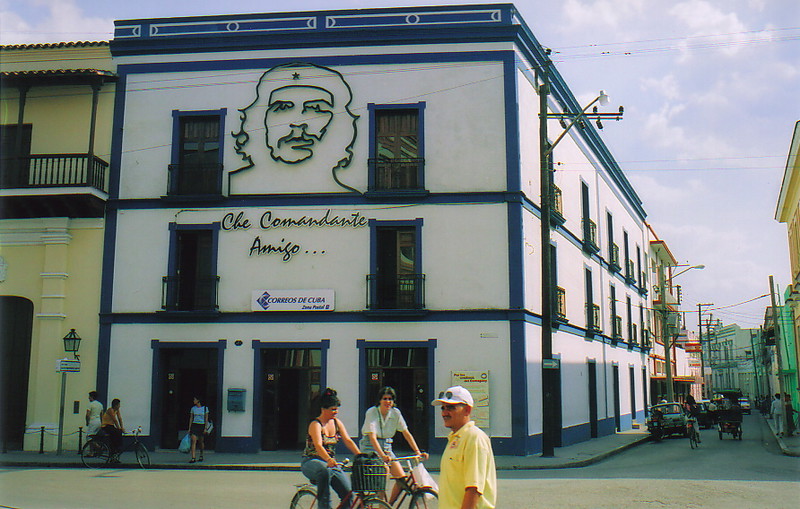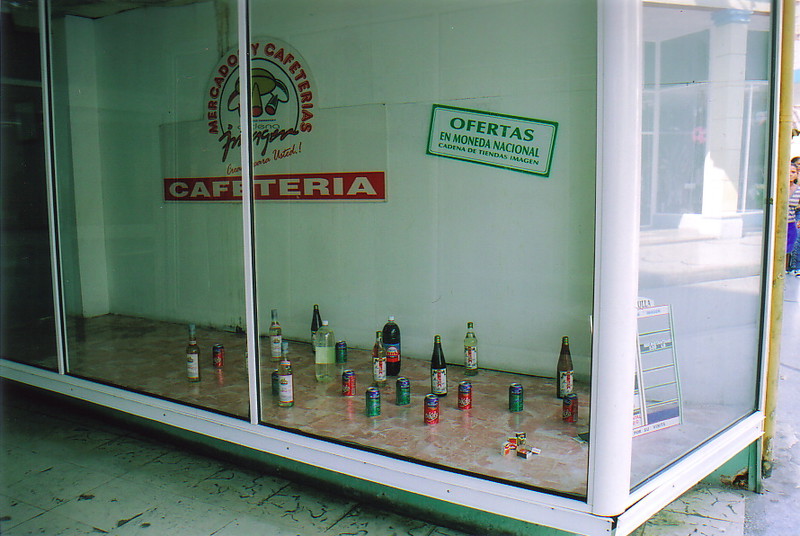
Cuba has to be one of the most famous communist countries still going, not least because it's a continual thorn in the side of the US government. But you could be forgiven for thinking that Cuba has cast off its Leninist-Marxist approach to life and gone all capitalist, because the signs of socialism are surprisingly subtle.
Certainly Cuba feels nothing like the old Eastern bloc; there are few grey, monolithic concrete structures, and although there are featureless housing estates dotted throughout the suburbs of some of the cities and towns, housing in the main seems to be in older, more stylish accommodation, which might be crumbling before your very eyes, but which is a far cry from the rabbit hutches of the Soviet state. Sure, along the roadside you'll see plenty of communist slogans like ¡Hasta la victoria siempre! ('Until victory always!' or 'Struggle towards victory forever!') and Un mejor mundo es posible ('A better world is possible'), but Fidel has clearly avoided a Stalinist cult of personality. It feels as if he's a genuinely popular guy anyway, and the feeling is more one of a commune rather than communism.
Confusing the situation further is the dual economy, which Fidel reluctantly introduced in the early 1990s after the collapse of the Eastern bloc. The considerable aid that the Soviets had been sending to Cuba dried up – money that the Russians are still trying to get back, which seems a bit churlish – and given the continuing US trade embargo, Fidel had no choice but to start propping up his slowly crumbling economic foundations by planting the seeds of capitalism... and like climbing ivy, capitalism is slowly infiltrating all the cracks in the economy, shoring it up at the expense of pure socialism.
Two Currencies

The dual economy is pretty explicit, because Cuba has two very different currencies. The national currency of Cuba is the peso Cubana, and this is what state workers are paid in. There are around 27 Cuban pesos to the US dollar, meaning the average wage is about $13 a month. The welfare state means that all Cubans have access to basic food via a ration system, and they have excellent state education, one of the best health services in the world, and no illiteracy, so although it might sound like almost no money, it buys you a higher standard of living than it would in a lot of other countries. In terms of social policy, Cuba has got a large number of things very right, from a lack of crime to fair standards of living for all. It's something that the Cubans should be extremely proud of.
The socialist state might be an impressive and highly laudable achievement, but Cuban pesos won't buy you any luxuries; shops that sell in the local currency are pretty sad affairs, and while you won't starve on the ration system, you'll hardly enjoy the culinary variety of rice, sugar, oil, pasta and beans. This is where the second currency comes in, the peso convertible, which has a much higher value of one convertible peso to one US dollar (though, amusingly, if you try to change US dollars into convertible pesos, the Cuban government will charge you a 10% fee, which only applies to those changing US dollars; those changing pounds or euros can change at the full rate). The tourist industry runs on convertible pesos, and as a visitor you'll find it pretty difficult to spend more than a handful of Cuban pesos; it's all convertible pesos, so much so that the currency sign for pesos is the $ sign. Indeed, until , the US dollar was legal currency in Cuba with one US dollar being the equivalent to one convertible peso; as a result of George Bush's increased nationalism and a hardening of his stance on Cuba, however, Castro banned the dollar from Cuba, reverting instead to the convertible peso.
Cubans can own convertible pesos and can open dollar bank accounts, though the majority don't bother with the latter, apparently because they don't want the government knowing about their finances. This has the effect of creating a class system inside the socialist states, made up of those who have convertible pesos (those who are 'in the dollar market', as it's still called), and those who don't. People who work with tourists can rake in the convertible pesos, while state doctors are still paid in Cuban pesos; as a result you find doctors and lawyers quitting their jobs to work as waiters, because there's more money in it. It's a sad state of affairs, but it's hard to see how tourism can be introduced without it creating such an imbalance.
Money in the House
Owners of casas particulares are a case in point. Camagüey has a large dollar-based department store in the centre of town, where lockable fridge-freezers retail for about $600, about the same price as in London. Our casa had a brand new fridge-freezer in the kitchen, just like the ones in the shop; they also had two TVs, a hi-fi, air conditioning and even a regular cleaner. There's clearly money to be made in renting out your rooms.
The government isn't totally unaware of what's going on, though. In Trinidad, Manuel explained that the licence to rent out a single room in a casa costs $210 a month, payable even if the room isn't let; if two rooms are let (the maximum allowed in one house), then the licence costs $420. Given that the average night in a casa, including evening meal and breakfast, is around $35-40 for two people, it means there's money to be made if you're successful, but the tourist season isn't year-round, so casa owners have to do their sums carefully. There are plenty of houses around with out-of-date casa signs stuck on the outside – the colour of the sign denoting a licensed casa changes every year – so it's obviously not a cash cow for everyone.
Another restriction on casa owners is that only those directly involved in running the casa can live there; people with other tourist-related jobs aren't allowed to stay, which is why Manuel had just moved out of his parents' house and in with his mother-in-law1 down the street. But those taking the gamble and going for the dollar market can reap the rewards; they can, effectively, become Cuban capitalists. It's a funny sort of socialism...
1 In a country where the plural of the word for 'wife' – esposas – means 'handcuffs', this was no mean sacrifice. Then again, the plant that we call 'mother-in-law's tongue' on account of its sharp leaves is called 'grandmother's tongue' in Cuba, so perhaps things are a little different under communism, after all.